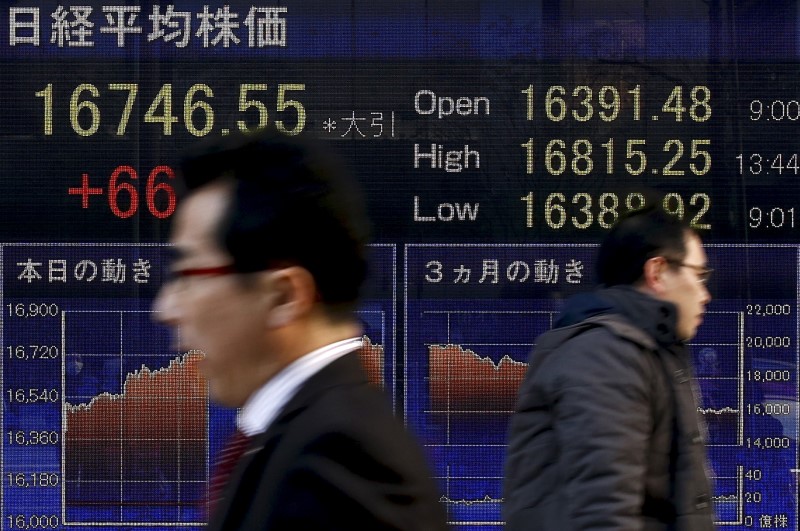By Claire Milhench
LONDON (Reuters) - Investors withdrew $7.3 billion from stocks in the week to April 20, the largest outflows in nine weeks, while continuing to shovel money into corporate and emerging market debt, Bank of America Merrill Lynch (BAML) (N:BAC) said on Friday.
The equity redemptions were led by $4.2 billion of outflows from U.S. stocks and $2.6 billion from Japan. These were the largest outflows for Japanese equity funds since November 2014 and extended the longest outflow streak since February 2012.
European equities suffered $2.1 billion of outflows and are now in their 11th consecutive week of redemptions, the longest outflow streak since May 2010, said BAML, which also uses data from fund flows research house EPFR Global.
The outflows came despite European equities (FTEU3) gaining 3.3 percent so far this month, with Japanese stocks (N225) up 4.9 percent and U.S stocks (SPX) rising 1.5 percent.
But in a continuation of the previous week's trend, investors preferred fixed income, ramping up bond exposure by $4.9 billion. The higher yields on corporate credit were sought in preference to safe-haven government bonds and treasuries, with investment grade credit attracting $2.9 billion, emerging market debt $1.3 billion and high-yield bond funds $800 million.
BAML noted that emerging market debt funds had attracted $9.2 billion over nine straight weeks of inflows, but this follows a massive $102 billion of redemptions over the past three years.

The bank added that its bull and bear index, a gauge of market sentiment, was at a 10-month high of 4.9, putting it in neutral territory. This is up sharply from the February and March lows of 0.1, which marked extreme bearishness in the market.